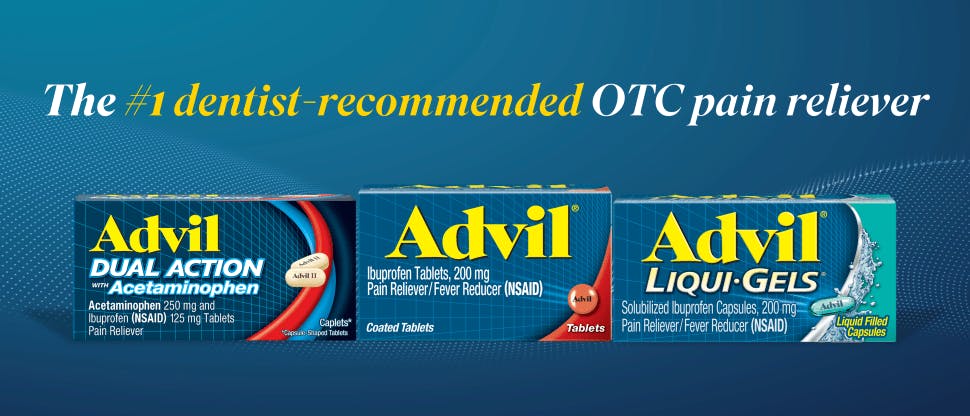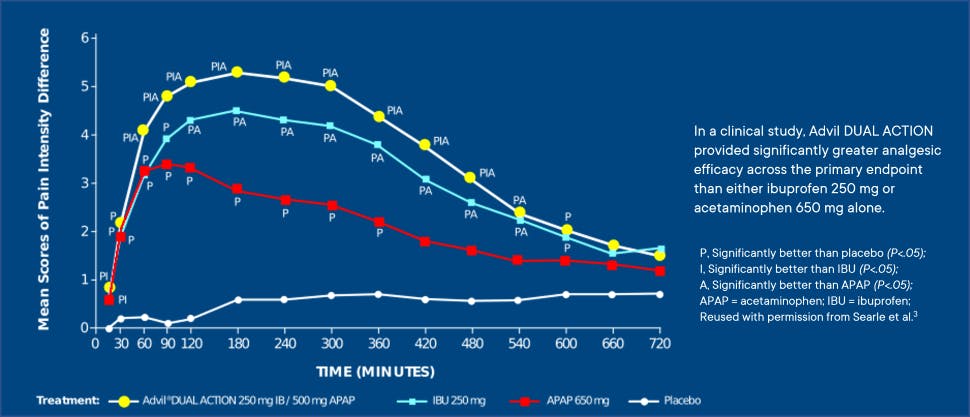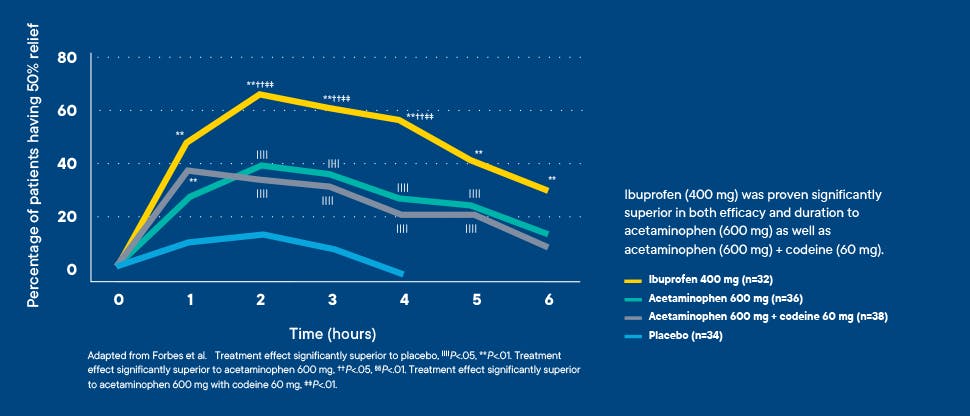Dental Pain Management

Dental pain: relief and management
The ADA guidelines recommend NSAIDs, like Advil, first line for acute dental pain.1 Whether patients are experiencing pain due to dental procedures or oral conditions, you can help them find safe, effective relief.
Relieve your patients’ dental pain
Advil is the #1 dentist-recommended OTC pain reliever
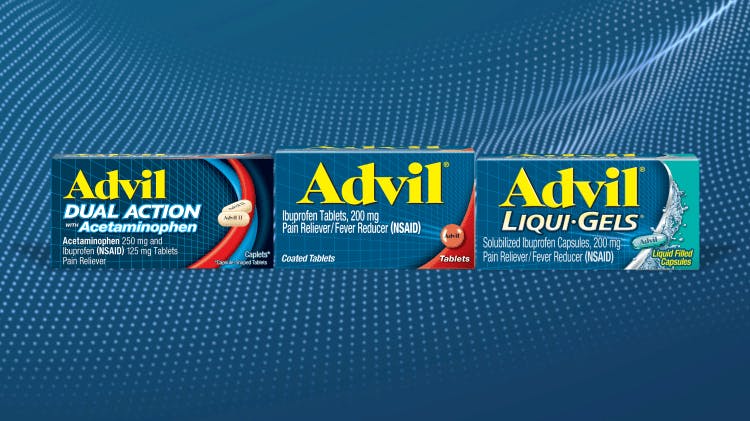
Advil’s proven efficacy and safety profile
Discover why Advil is the #1 NSAID brand preferred by patients.
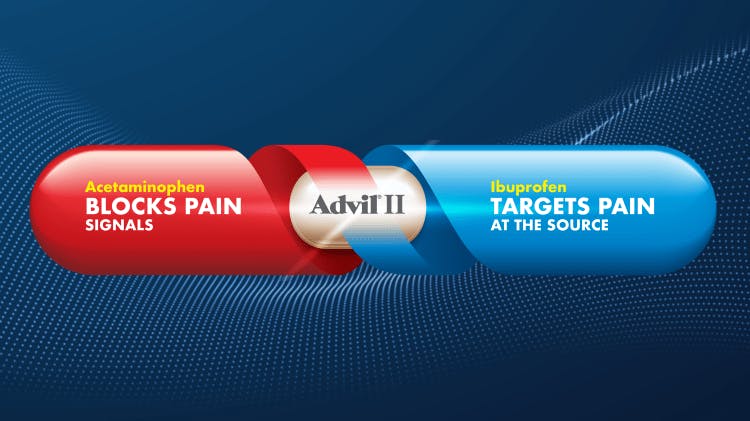
Discover Advil Dual Action
Learn how Advil Dual Action combines 2 distinct mechanisms of action (MOA) to fight dental pain in 2 ways.
Patient resources
Access resources designed to help your patients as they navigate their pain symptoms.


